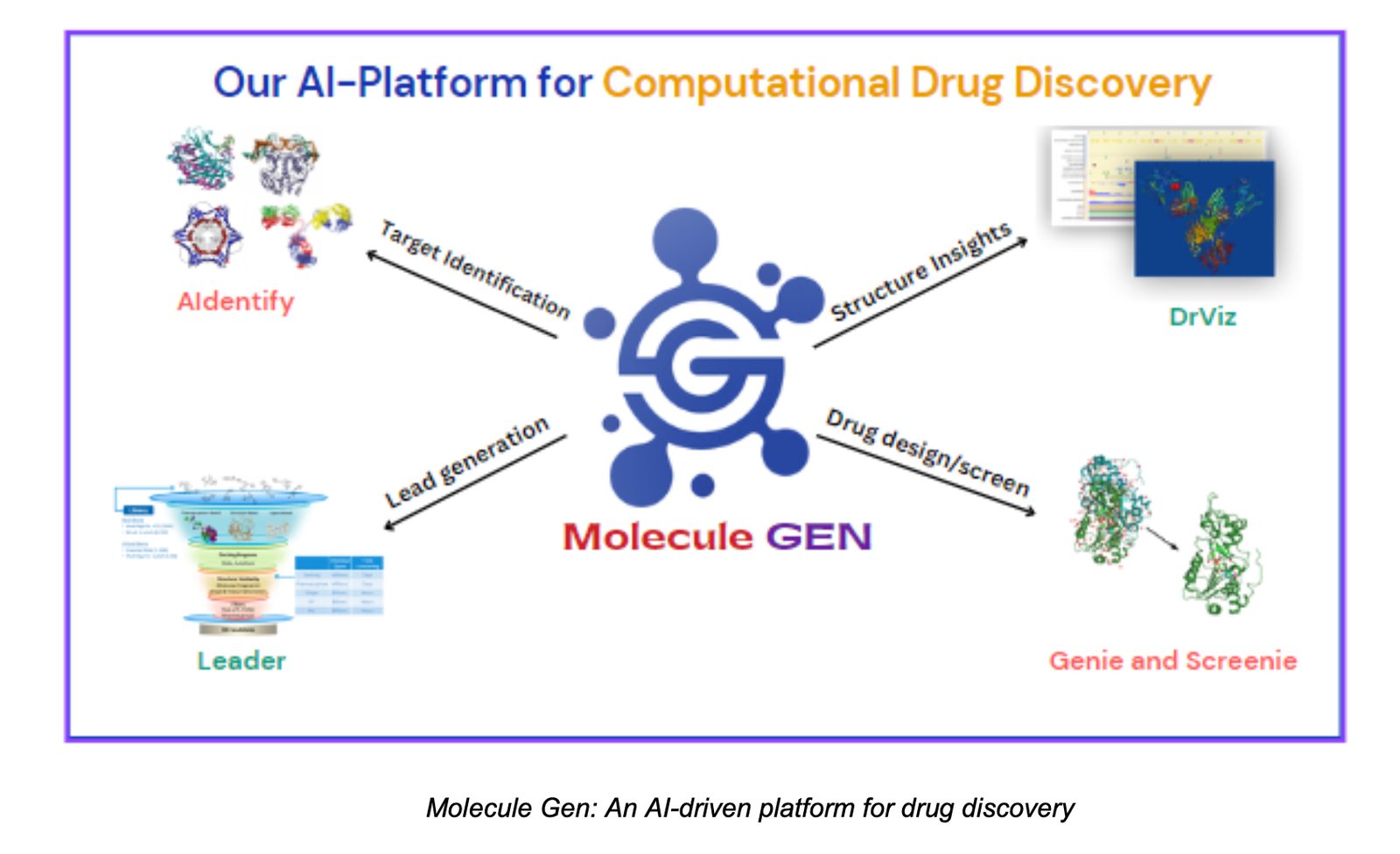“The challenge in finding a cure resides in the nature of the disease-causing antigens. The antigens causing neurodegenerative disorders are one of the most notorious since the proteins that make up these antigens are yet to be definitively mapped. Research so far shows us that these antigens are also shapeshifters! This makes the synthesis of any potential antibody even more laborious, especially with the current set of tools and processes available today”, says Saurabh Singal.
With the use of Artificial intelligence and advanced computational models, Molecule AI hopes to be able to simulate potential antibodies and small molecules, which would have a high probability of success in combating the target antigens. However, such models do not yet exist. Even the most advanced AI models today can only work for much simpler antigens (than those causing neurodegenerative diseases) and even then, only give two-dimensional results. Therefore, the first step is to build an intelligent model that can be used to train machines that, given a set of required properties as input, can produce a small molecule, protein, or antibody and specify its 3-D structure with high accuracy.
To be able to build such a model, researchers need to perform several complex steps, such as carrying out detailed analyses of the target antigen structure and its relationship to other proteins and filtering out false positives from sets of potential drugs against these targets (whether small molecules, proteins, or antibodies) based on various parameters. While going through such steps themselves, the team at Molecule AI felt that an easy-to-use tool that could help with all the steps in this complex drug discovery and design process would be highly beneficial to the drugdiscovery field in general. With this in mind, MoleculeAI is building its drug discovery platform “Molecule Gen”.
Molecule Gen incorporates various modules such as target identification, target visualization and analysis, AI-driven drug generation (both small molecule and antibody), filtration of initial hits to a few leads based on an extensive set of screening criteria, and advanced validation tools that provide high confidence that the leads generated by the computer will work in the lab. All these modules incorporate Molecule AI’s proprietary algorithms with enhanced capabilities compared to current state-of-the-art tools.









